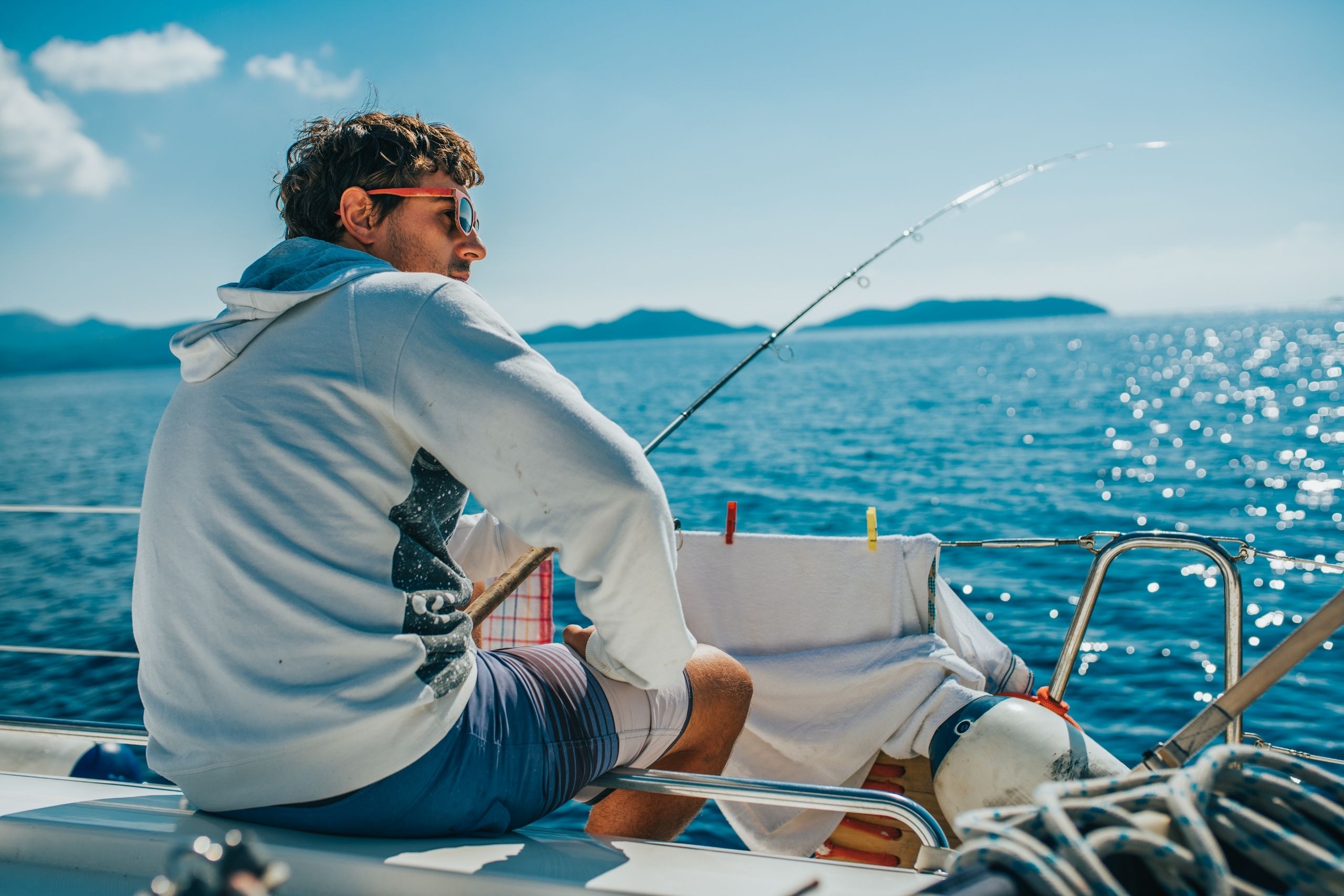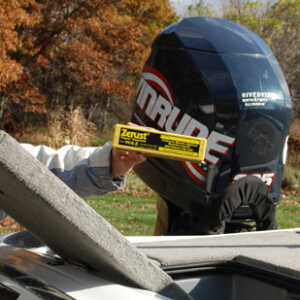Battling Aluminum Boat Corrosion Off Saltwater Shores

Battling Aluminum Boat Corrosion Off Saltwater Shores
The last two years, there has been explosive demand for boats. The National Marine Manufacturers Association (NMMA) reports retail sales units of power boats, personal watercraft, wake boats, and freshwater fishing and pontoon boats have sailed well beyond a 20 percent increase since 2019. One of the most popular materials in boat manufacturing: Aluminum. It’s lightweight (thus faster on the water and easier to tow), inexpensive, and relatively low-maintenance. BUT… Aluminum boat corrosion is a major issue, particularly in and around saltwater. Boat owners must take proper heed to prevent unnecessary deterioration.
Aluminum boat corrosion is primarily due to an electrochemical reaction that occurs when aluminum is in proximity to other metals. This is accelerated in a saltwater environment. When metal is corroded by other metals, it’s called galvanic corrosion or bimetallic corrosion. It occurs when metal has an electrical contact with a more “noble” metal (those more resistant to chemical action and corrosion and not easily attacked by acids) or a nonmetallic conductor in a corrosive electrolyte (like saltwater). Conductivity goes up with the temperature too – which is why boats in Florida corrode faster than those in Maine.
Boat builders will try their best to prevent galvanic corrosion by designing vessels in a way that keeps aluminum components away from noble metal components. Boats built for saltwater fishing generally don’t allow joints or crevices that collect water. They also avoid channels or upturned brackets where saltwater can become trapped. They’re typically constructed with sacrificial anodes, made of zinc, which bear the brunt of the electrochemical reaction so the aluminum is protected.
Still, these solutions aren’t always perfect. Even if your boat is well-made, if it’s stored in the water near boats made of more noble metals or components, it can still be at risk of galvanic corrosion. The rate of corrosion is impacted by how chemically active a metal is when it is placed in saltwater (more active metals are more highly susceptible to corrosion.) Aluminum tends to be a fairly active metal. That’s why ideally, per the American Boat and Yacht Council, aluminum boats should have protective paint coating that provides a high resistance barrier between the aluminum and the water.
Key Solutions to Keeping Aluminum Boat Corrosion at Bay
 Purchasing your boat from a reputable manufacturer will go a long way. But there are other ways to halt aluminum boat corrosion. Among those:
Purchasing your boat from a reputable manufacturer will go a long way. But there are other ways to halt aluminum boat corrosion. Among those:
- Keep your boat clean. It’s a good idea to give your boat a good washing after every trip. A quick hose down is better than nothing, but your vessel will last longer if you wash and scrub with soap and fresh water – paying particular attention to all the metal components. Give your engine a freshwater flush to remove all traces of saltwater. Towel dry the components you can reach when you’re done.
- Check your sacrificial anodes. You want to keep an eye on these, and replace them if they’re degraded. The owner’s manual should give you a good sense of how many you need and where they are.
- Keep it lubricated. There is special marine grease you can apply to the moving metal parts (latches, hinges, bow rollers, etc.). Basically, if it moves and it’s metal, treat it with some extra lubrication.
- Treat your engine and fuel system. We recommend using a fuel system treatment (1 ounce per every 10 gallons of fuel) to protect these internal components from corrosion. When you store your boat, do so with a full tank.
- Keep it protected. Make sure when your boat is in its slip, the outboard is tilted to its highest position to avoid it simply sitting in saltwater the entire time. Also, keep your boat covered. For maximum protection against aluminum boat corrosion, place VCI boat capsules underneath the covering and in the storage area. VCI stands for “vapor corrosion inhibiting,” a patented technology that releases a non-toxic, protective coating that serves as a shield against the electrochemical processes of rust and corrosion. Zerust VCI boat capsules last from 1-2 years, depending on what size you purchase.
*************@************ts.com“>Contact Zerust for information on Vapor Capsules and boat rust prevention by emailing us or calling (330) 405-1965.
Additional Resources:
Types of Marine Corrosion, BoatUS.com
More Blog Entries:
A Marine Must: Boat Rust Prevention With Vapor Capsules, April 26, 2021, Zerust Boat Rust Prevention Blog




